“Round about the cauldron go: In the poisoned entrails throw,”
So says the First Witch in Act 4 of William Shakespeare’s Macbeth, in which the troubled but courageous clansman is persuaded by the predictions of three witches to turn murderous traitor and make himself king, killing anyone who gets in his way. The spell, of course, was much longer than its opening lines; after all, who would leave out the “toad that under cold stone days and nights has thirty-one”? Or the “eye of newt” , “toe of frog”, and surely no-one would omit the “filet of a fenny snake”, whatever one of those is. The 11th century Scottish king is depicted in the play as brave in action but indecisive in other ways and easily led into wickedness. The play is, in theatrical superstition, notoriously unlucky: the version my school was taken to see (at the Sunderland Empire, if memory serves) certainly was. It had a problem with a smoke machine that rendered the stalls too full of impenetrable mist for the stage to be visible plus a Macduff who fell through an unbolted trapdoor in the middle of his concluding duel with Macbeth.
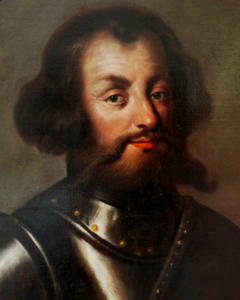
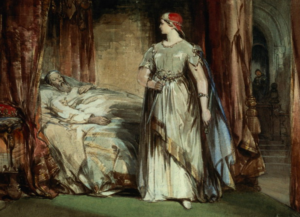
Highly amusing, but not for the poor actors. The historical Macbeth wasn’t at all like the figure portrayed on the stage: he won the crown fairly in battle, had a reputation for being just and gave generously to the poor during a pilgrimage to Rome with his loving wife, Gruoch.
His was a mainly peaceful reign lasting for 14 years, which was unusual back then, although it ended with his defeat and overthrow. No witches came to disturb him, no-one who was “not of woman born” threatened his throne and Burnham Wood never did come to Dunsinane.
Tourists should note that only one oak and one sycamore survive from the original Birnham Wood (to spell it correctly), and they are no doubt descendants of the forest giants from which Siward’s men hewed their branches to hide their numbers. Perhaps, however, those same witches, or others like them, have been active in Russia. Many Russian folk tales concern witches and wicked spells.

Remember Baba Yaga? She is the most famous witch in Russian legend, described as a bony and occasionally cannibalistic old woman who lives in a house that moves about on its own chicken-like legs. It’s also covered in human bones. Perhaps she could have decided to do a Macbeth-type trick with Russia’s current leader. After all, Vladimir Putin is a man without a notable background; he had been a low-grade KGB agent, yet he seems now to want to rule the world. To do it, he is not stirring a cauldron (as far as we know) but he is stirring up the politics of Europe and the United States. The poisoned entrails are the lies and misinformation his agents feed to the people living in the countries of his self-imagined enemies, most of whom would far rather be friends. “Double, double, toil and trouble”; rumour spread and mischief bubble.
The clearly detected interference by Russia in Donald Trump’s 2016 election and in the UK’s Brexit referendum forced European politicians to sit up and take notice. Here was a new kind of enemy with a new kind of weapon, the sort that cannot easily be limited by treaty. Putin seems happy to play with fire: Scientific American reports that attempts to restrain the spread of nuclear weapons by treaty have been seriously jeopardised by Moscow. “More broadly, extending the treaty should be part of a much-needed attempt to improve the perilous state of US-Russia relations – exemplified by Russia’s recent massive cyberattack on US institutions, including the federal agencies charged with maintaining the national nuclear stockpile.” It matters, because of the estimated 9,500 nuclear warheads currently in military service around the world’s nine nuclear-armed states, more than 90% are in the hands of Russia or the United States. As to Russia’s influence during the Brexit campaign in the UK, the rôle of Johnson’s personal adviser Dominic Cumming, a prime leader of the “Vote Leave” campaign, has been questioned. He learned Russian and moved to Russia after university, living there for a few years and forming close relationships with some of Putin’s closest allies.
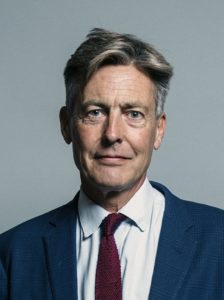
One British MP, Ben Bradshaw, told the Sydney Morning Herald, an Australian newspaper, that he was concerned about Cummings’ access to top secret defence papers and his influence: “Boris Johnson’s chief of staff, whose account of his time in Russia is apparently full of gaps and inaccuracies, is granted inexplicably the highest level of security clearance yet is not given full access to secret intelligence.”
Cummings became friendly with Vladislav Surkov, a close Putin ally, and the newspaper expresses Australian concern: “Surkov, personal advisor to Putin, is widely regarded as the creator of post-truth politics where facts are relative,” reports the paper.
“He recently said that the Putinist system of government would be the ‘ideology of the future’ and said that Russia was ‘playing with the West’s minds.’
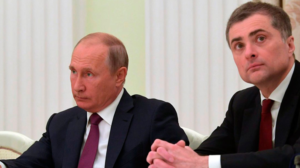
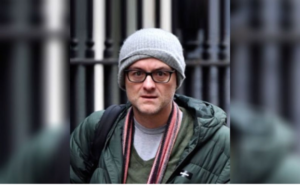
He is more recently seen as the point-man for Russia’s operations in eastern Ukraine.” If he’s right, we can all look forward to life under a dictatorship where critics are murdered with military nerve agents or locked up on trumped-up charges.
Meanwhile, fears that Cummings might be a little too close to the Kremlin were dismissed by the British government as “paranoid fantasies”. Cummings was finally removed from power (supposedly) after crossing swords with Johnson’s fiancée, Carrie Symonds, whose word is law, it seems, at No. 10, Downing Street.
During Donald Trump’s time in the White House, Putin seems to have had an ally, at least as far as Europe is concerned. Trump once said he hated the European Union, although he failed to explain adequately why individual countries banding together to take collective decisions and to co-operate on trade so horrified him. It certainly seems as if Putin shares Trump’s distaste. He would love to break the Union apart and there have been many instances of him trying to achieve that.
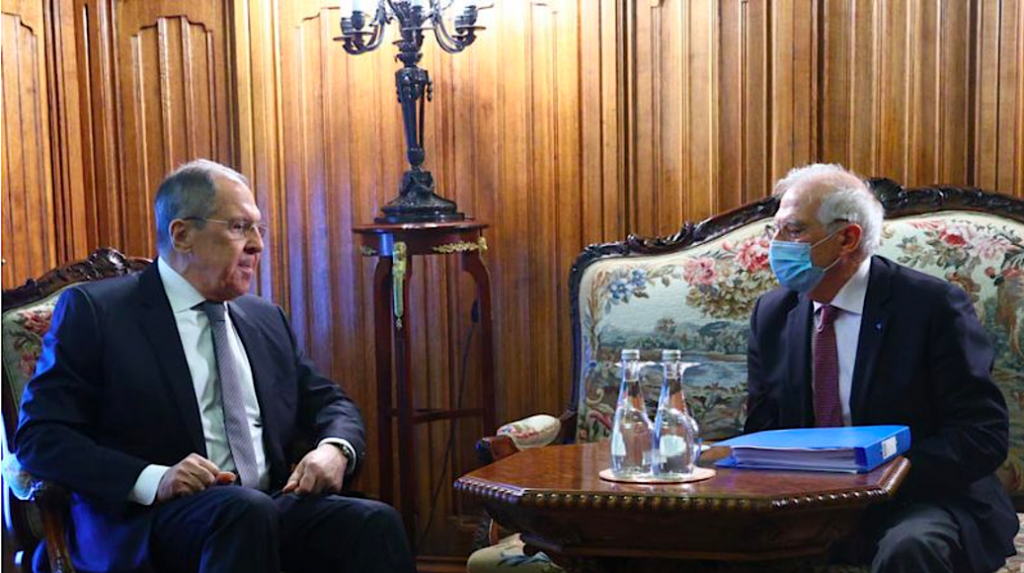
When the EU’s foreign affairs chief, Josep Borrell, went to Moscow on a mission to secure peace, he was deliberately and publicly insulted by the Russian Minister of Foreign Affairs, Sergey Lavrov who alleged that the EU couldn’t be trusted. It’s strange, therefore, that Russia chooses to trade so much with the EU. Three diplomats from EU countries were expelled during Borrell’s visit for joining protests against the jailing of Russian opposition campaigner Alexei Navalny. It’s not the first time Borrell has been publicly humiliated, although on this occasion it was almost blatant enough to count as an act of war.
DIRTY TRICKS
Navalny himself is not getting the best treatment. According to a worrying report in the Washington Post: “Jailed Russian opposition leader Alexei Navalny, on a hunger strike after being denied medical care, has been hoping for a visit from a doctor. Instead he got a less welcome visitor (on) Thursday: Maria Butina, the Russian agent convicted and jailed for conspiring to infiltrate political organizations in the United States without registering with authorities.”
Butina turned up at the prison camp with a camera crew from Russia Today, the pro-Putin propaganda TV station, then interviewed the ‘trustees’ who help impose discipline, who told her that the prison is ‘very comfortable’. Navalny claims the same trustees and guards wake him eight times a night whilst denying him pain relief for his legs. Putin’s Russia is a very uncomfortable place for anyone who doesn’t support him, and he seems to be trying to expand that regime to encompass the rest of the world. At least Macbeth had fought bravely and successfully, according to Shakespeare, against “the merciless Macdonald” and his Norwegian allies in defence of King Duncan before being lured onto the dark side by the three witches. Putin can make no such boast. Navalny claims he is losing the feeling in his legs but the prison authorities will not allow him any medical help or pain killers.
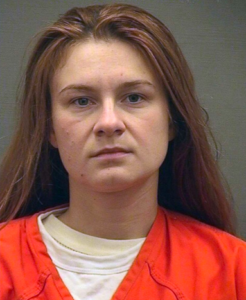
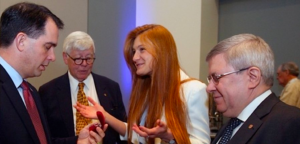
Wisconsin Gov. Scott Walker (R) with former American Conservative Union and NRA President David Keene, Russian gun lobby agent Maria Butina and Deputy Russian Central Banker Alexander Torshin in 2015 at a Presidential campaign © Our American Revival
The Butina incident, though, is a clear illustration of the sort of underhand tricks the Kremlin is now employing. As reported in the Washington Post, “she was arrested in 2018 and sentenced to 18 months in prison in the United States in April 2019. She pleaded guilty to conspiring with a senior Russian official to infiltrate the National Rifle Association and other groups without registering with the Justice Department as a foreign agent. She was released and deported in October 2019.” At her trial, the judge commented on Russian attempts to infiltrate far right and conservative organisations on Putin’s behalf in order to gain influence. She complained that the prison had contained transgender people, which she found “unspeakable”. Just as Putin would expect, she was pushing the ultra-conservative line he favours where LGBTI people are concerned: cleaner-than-clean at home, as dirty as possible everywhere else. Butina admitted working under the direction of a former Russian official, Alexander Torshin, a former Russian government official, in a bid to establish lines of communication with influential and reactionary Americans. She admitted to working under the Torshin’s direction in an attempt, ordered by the Kremlin, to establish unofficial lines of communications with Americans who could influence U.S. politics. Butina later claimed she admitted to the crime “under pressure from authorities”. Since she was a secret agent, illicitly pushing Kremlin policies under cover, that can hardly come as a surprise.
Putin’s attempts to interfere everywhere surfaced in a question to the European Commission, tabled as a priority in the European Parliament by Jordi Cañas, an MEP from Catalonia. He was complaining about Russian interference in Spain’s democracy: “The Spanish National Court has launched an investigation into possible interference in Spanish internal politics by Unit 29155, a Russian military intelligence organisation, which is suspected of encouraging the Catalan separatist movement,” runs the question.
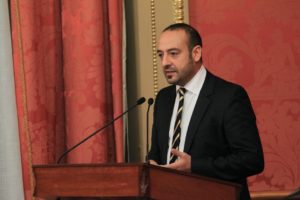
“According to the intelligence services of a number of countries, it has been involved in various attempts to destabilise Europe.” He added: “This is not the first time that the hand of Russia has been detected behind attempts to destabilise European countries.”
France has also been targeted. The European Council on Foreign Relations (ECFR) describes it as “an open battle between liberal universalism and authoritarian statism; the liberal international order and realpolitik”.

It mentions how, during the 2017 French election, Putin welcomed French presidential candidate and far right leader Marine Le Pen, declaring that she “represented a range of political forces gaining momentum across Europe.” Two months later, Putin was obliged to stand in the Palace of Versailles, looking uncomfortable while congratulating the pro-European winner, Emmanuel Macron. Macron stated bluntly that “Russian propaganda channels had spread false information during the election,” but he did so calmly, which must have annoyed Putin even more. The ECFR, in its ‘EU-Russia Power Audit’ says that “Russia supports anti-establishment forces in Europe because it lacks friends among establishments. Its use of unconventional methods is not a demonstration of creative strategy but an attempt to compensate for deficiencies. Russia and Europe differ widely on a range of topics, such as Russia’s seizure of Crimea from Ukraine. They disagree on such issues as human rights and democracy, and on any country’s right to choose its own alliances.”
FRIENDS FROM LOW PLACES IN HIGH PLACES
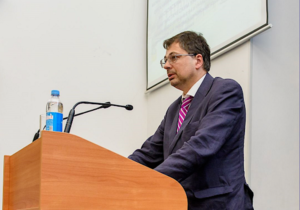
France had been expecting Moscow’s interference and deliberately played it down, although at least once the Foreign Ministry, based at the Quai d’Orsay in Paris, telephoned the Russian ambassador to remind him of the rules.
The message clearly wasn’t passed to Moscow, or if it was it was ignored. Russia continues to nominate known crooks to senior positions in international organisations it wants to undermine.
It has, for instance, re-nominated the convicted money launderer Vladimir Kuznetsov to serve on the UN’s Comprehensive Nuclear Test Ban Treaty Organisation’s (CTBTO) Advisory Group on administrative and financial matters.

Kuznetsov, (who is already serving on the CTBTO), is an employee of the Russian Foreign Ministry and a former employee of the United Nations, who was convicted in the Southern District of New York in 2007 of conspiracy to commit money laundering related to the UN’s Oil for Food programme, sentenced to 51 months in prison and fined $73,000 (€60,400). It is reminiscent of saying “Hello, Mr Fox, and welcome to your new job in charge of the hen house”.
It has been suggested that Russia also played an influential part in the UK’s referendum on leaving the EU. It’s quite possible, but publication of a report by the British Parliament’s own Intelligence and Security Committee (ISC) into Russian meddling was deliberately held back until after the election of November 2020, so that it would not affect the outcome. It was ready for publication in the autumn, long before the poll. Prime Minister (and keen Brexit supporter) Boris Johnson insisted that publication should await the election and the subsequent selection of a new ISC. A government attempt to elect an easily controllable candidate to chair it was thwarted by an independent-minded Conservative MP who sacrificed his own future career to do so, putting himself forward and getting elected to the post himself.

The text of the report, according to the ECFR, had been heavily redacted, with the most interesting parts blanked out, although it does point out that Russia is, in the ECFR’s words, “an aggressive mafia state, with state organs and organised crime working together in a ‘symbiotic relationship’.” It also states that UK systems are subject to repeated cyber-attack by Russia, while Russian disinformation efforts “persistently seek to confuse, divide, and foster extremism.”
Before 1989 and the fall of the Berlin Wall, Russian attempts to influence the West were aimed at spreading Communism, although Soviet-style Communism was not the sort that Marx, Lenin or Trotsky would have recognised. Putin’s actions seem designed to help foster Communism’s exact opposite: Fascism, or rule by dictator. Does the report show whether or not Russia interfered in the Brexit vote? Apparently, it’s a question the ISC never asked. It does show, however, that over the last quarter century, dirty Russian money has been deployed “at the heart of the British system”, whether through donations to political parties, through a range of charitable and cultural ‘donations’ or through the straight-forward purchase of Members of the House of Lords. It turns out – and it’s hard to believe but none-the-less true – that under current legislation it is not a criminal offence to be the covert agent of a foreign intelligence service. As the The European Council on Foreign Relations (ECFR) puts it: “So successfully has Russia ‘invested in extending patronage and building influence across a wide sphere of the British ‘establishment’, according to the report, that ‘Russian influence in the UK is ‘the ‘new normal’.”
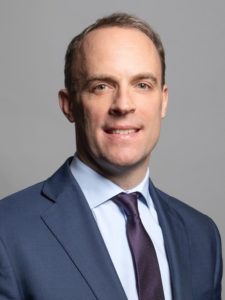
In today’s Britain, money talks much more loudly than democracy or human rights: Defence Secretary Dominic Raab was telephoning Saudi Arabia to reassure his opposite number there of Britain’s continued friendship immediately after some Saudi nationals had been sanctioned by the UK for their involvement in the murder of Jamal Khashoggi.
SPREADING ILLIBERALISM
Russia still seems attached to the 1990s concept of ‘managed democracy’, based on the idea that the elites (however they are composed) need to control the electoral choices of the ‘masses’. The Kremlin goes further by wanting to limit the list of elites who are ‘eligible to steer the masses’.
The belief is that only the Kremlin should be entitled to decide the future of Russia; ‘all foreign elites and alternative domestic ones had to be kept at bay’. Russia clearly wants to be not just a global power but to be in a position to dictate terms to others in any disagreement. This is obviously a belief that is and will long remain anathema to the West. Some experts say that Russia’s actions are the result of its perception that it was defeated in the Cold War, but that was an idealistic clash: a supposedly Marxist-Leninist philosophy (although it wasn’t really) against capitalism. Now it seems to be uber-capitalism against traditional capitalism, although traditional capitalism appears to be moving ever-closer to the ‘uber’ type.

Russia believes in elites but really doesn’t understand the idea of ‘people-power’. “There are not many countries in the world that enjoy the privilege of sovereignty,” said Putin in 2017, adding that “Russia treasures sovereignty.” His vision of sovereignty, though, is very different from what most people in Western democracies would imagine. His version is state sovereignty: the right of the state to do whatever it likes. There is no room in there for human rights or the freedom of choice. It is what lies behind Russian intervention in Syria, according to the ECFR, the defence of a strongman against a popular rebellion. He considered it the right course of action which would demonstrate his beliefs to the West. “I’ll show them how this is done,” he is alleged to have said.
Russia clearly believes that the west has been interfering in Russia’s affairs, although what the allegation means may surprise people in the West. Indeed, Putin is reported to have complained that America is “constantly interfering in our political life”. He sees support through documentaries and dramas on Western television of anti-establishment groups – such as sympathy for, say, Black Lives Matter or the MeToo campaign, as the equivalent to supporting anti-government groups in Russia. For that reason, Moscow sees nothing wrong in the creation of a “troll factory” near St. Petersburg to spread deliberate lies and misinformation, however dangerous and even deadly. Set up by one of Putin’s friends, the businessman Yevgeny Prigozhin, it is part of Russia’s on-going war with the West and with liberal democracy.
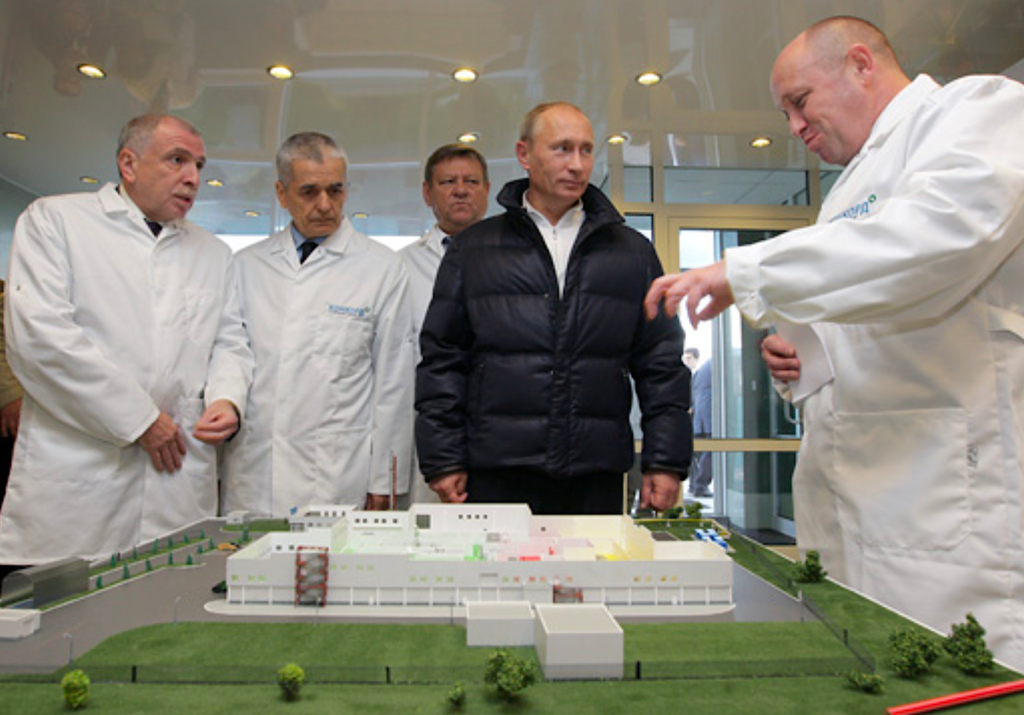
The Russian propaganda TV station, RT, is also pumping out lies and falsehoods to back up Russia’s view of the world. Serious Russian diplomats fear that all the interference has harmed Russia’s diplomatic core and weakened its influence with other diplomats.
It is, however, extremely dangerous. Take this case, known as the “Lisa case” in Germany, as reported by NATO: “The media storm surrounding a fake story about a Russian-German girl, who had reportedly been raped by Arab migrants, was a wake-up call for German political elites earlier this year,” ran the story in 2016. “For the first time, they clearly saw the links between Russian domestic and foreign media campaigns against Germany and Russian politics at the highest level.
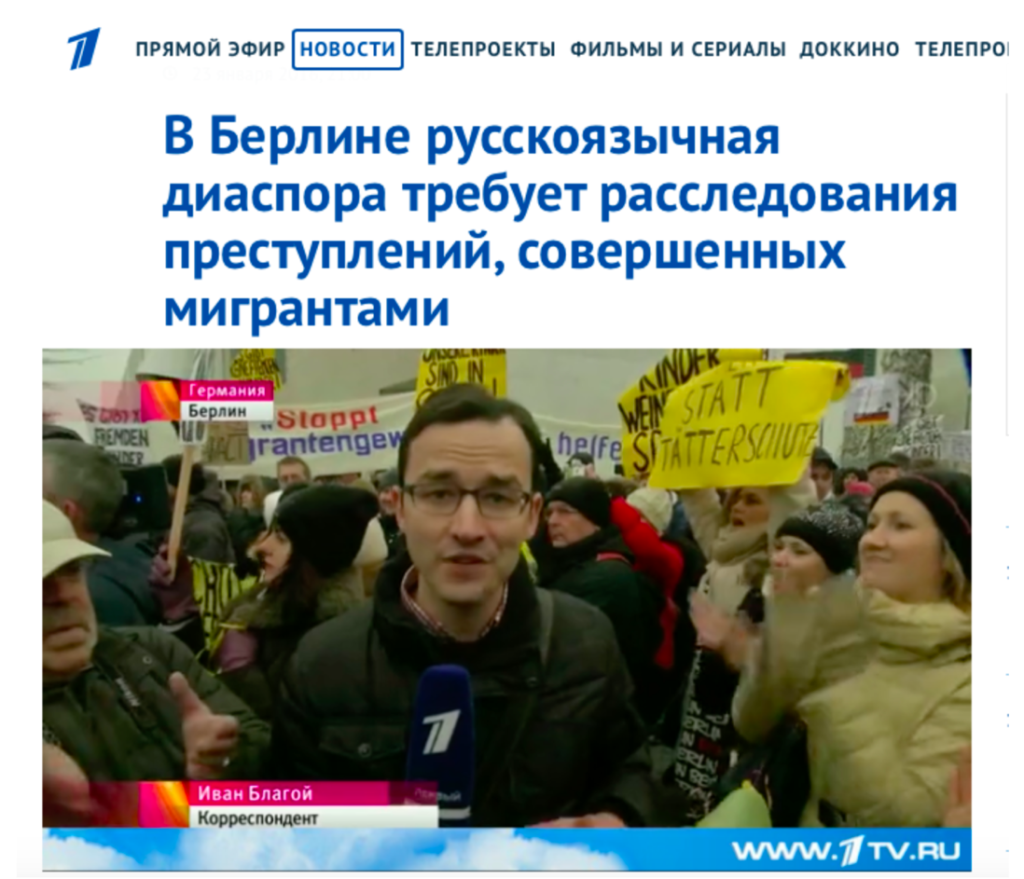
The German government promptly advised the Federal Intelligence Service (BND) in coordination with the Foreign Office to check Russian sources of manipulation of German public opinion.” Germany had been vocal over Russian action in Ukraine and Angela Merkel had been supportive of sanctions against Russia. “The “Lisa case“ also shows not only the failure of Germany’s partnership for modernisation with Russia but also the dysfunctionality of Russia’s attempts to use personal ties and informal networks to influence German decision-making and policy when it comes to the current crisis and, in particular, the person of Chancellor Merkel.” The “Lisa case” also demonstrates Moscow’s support for far-right parties. It spins untrue stories that deliberately and falsely stir up nationalism and racism. NATO noted that the Russian fiction served nationalist, anti-immigrant interests. “We observe three areas of Russian influence: first, Russian foreign media like RT and Sputnik; second, growing links with German populist parties on the right and left margins of the political spectrum; third, the use of its network of former politicians and institutions for dialogue to try to shape German decision-making on Russia in the current discussion on sanctions.”
It doesn’t always work, however. As the ECFR reports, “Eurosceptic and traditionalist movements have an influence on the overall atmosphere in Europe, but they lack the potential, primarily the intellectual one, needed for devising a strategy that would engage not only protest voters but also those who are looking for an alternative political and economic model.” In other words, the propaganda is mainly reaching those who are “against” things, rather those with any sort of strategy they could be said to favour. They want to tear things down but have no idea what to put up in its place, and even if they did, would lack the skills to build it. According to the ECFR, most Russian analysts agree that their country’s meddling is neither well-co-ordinated, nor designed or ever likely to bring down a Western government. “Rather it is an improvised collection of activities engaged in by various actors who are linked together by an ideology that labels the West as an adversary.” Again, it is made up of people who are “against” rather than those who are “for” anything.
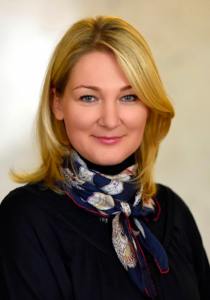
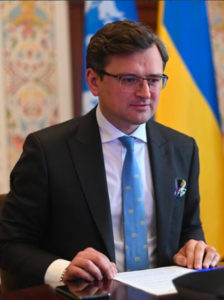
Russian parliamentarians at the Council of Europe’s Parliamentary Assembly had their voting rights suspended after the annexation of Ukraine but five years later they were restored, much to the anger of Ukrainian members. Shortly before the vote, Dmytro Kuleba, Ukraine’s ambassador to the Council (who is now Minister of Foreign Affairs), said “a green light to Moscow’s return would be the unilateral surrender of the Council of Europe to Russian demands.”
Maria Ionova, the acting chairperson of Ukraine’s parliamentary committee for European integration, told Interfax-Ukraine: “In principle, we do not see ourselves in the same room with the Russians. We will simply suspend Ukraine’s participation in the summer session … I do not know whether it will be possible to return there.”
The assembly voted 118 in favour of readmitting Russia with 62 against and 10 abstentions. Even those who question Russia’s suitability for membership don’t want to see Russian citizens losing access to the Court of Human Rights (even if Russia not only ignores its judgements but has adopted a law making it illegal to respond to them).
No-one must question or criticise what Putin does, however monstrous and illegal under international law.
FOLLOW THE LEADER
Russia’s constant attacks on Europe belie its dependence on EU trade. In a decade or so, Russia’s global trade nearly quadrupled from $210-billion (€178.6-billion) in 2003 to $802-billion (€682-billion) in 2013. Last year, Russia’s trade with the EU represented 48.5 percent of its total.
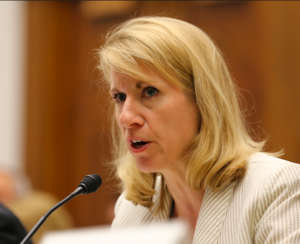
Heather A. Conley, writing for the Centre for Strategic and International Studies (CSIS), notes how relations with Russia have changed: “Over time, Russia’s economic integration with Europe—and specifically with the countries of Central and Eastern Europe—has gradually devolved from a positive source of growth into a negative and corrosive force,” she writes, “serving only to widen economic and political rifts within Europe. Europe’s reliance on Russian energy and financial resources and its accompanied political influence has hindered its ability to formulate a swift, unified, and robust response to Moscow’s violation of Ukraine’s territorial integrity.” Her conclusions are chilling. “This contestation is between liberal versus illiberal, transparency and good governance versus corruption and ‘managed democracy.’ The unqualified success of Central Europe’s transformation from Communism to liberal democracies and market economies is not immutable, and we should not trick ourselves into believing it is so.”
And yet the EU is still stumbling to make friends with Russia, with France and Germany apparently eager to become dependent on Russian energy. There is certainly a lot of gas, whatever way you put it. It’s somewhat reminiscent of a frail, weakly schoolboy giving all his sweets to the playground bully in the hope that he’ll avoid a beating. The current state of play is summed up on the Nature.com website: “The population is mainly reached through media and social media, exploiting divisive issues. Minorities, refugees, and extremists are used to further this divide and rule approach. Human intelligence and cyber operations are important covert tools of influence. Russia also uses the energy sector, business, and corruption as venues for influence. It has an extensive network of allies and front organisations and reconstructs reality and rewrites history to legitimize itself and undermine others. Finally, military force is Russia’s ultimate tool of influence.”
One-time US President Theodore Roosevelt would have understood the Putin approach. “Speak softly and carry a big stick; you will go far,” he said, allegedly taking the policy from an old African proverb. It’s interesting to look at where in Europe Russia is most keenly seeking influence. The Rand Corporation offers this summary: “The Baltic states of Estonia, Latvia, and Lithuania are often cited as being among the members of the EU and NATO that are most vulnerable to Russian influence. Possible motivations for Russian activities in the region include undermining and addressing the potential threat from the EU and NATO.” The website says that Russia is also very active in South Eastern Europe, where Slavic languages give it an advantage.
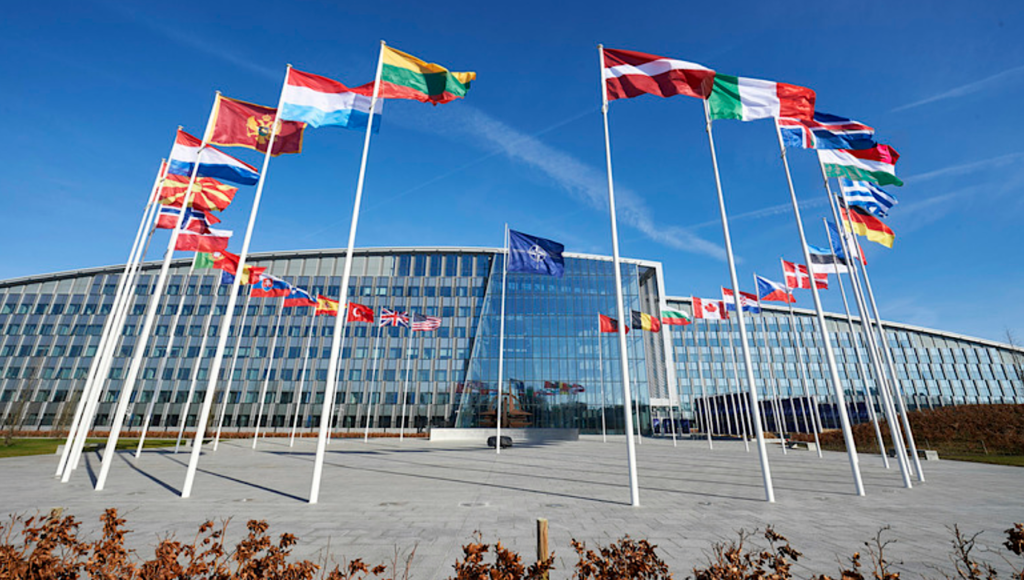
Moscow is not keen on letting NATO strengthen its defences in places like Romania, Moldova and the Western Balkans. The Rand Corporation warns the United States to take notice of aggressive and subversive Russian measures in Europe and to prepare itself to counter them. “Whatever the U.S. response, preparation for involvement in a wide range of conflicts can help reduce the risk of mismanagement, miscalculation, and escalation.”
Meanwhile, the European Parliament’s website reveals EU policy following its imposition of sanctions over Russia’s annexation of Ukraine, the first such action in Europe since Adolf Hitler annexed Austria. “The EU significantly expanded its own sanctions after the shooting down of flight MH17 in June 2015 over territory controlled by Russian-supported rebels in eastern Ukraine. The sanctions are regularly updated and prolonged. Despite the sanctions, the EU remains Russia’s biggest trading partner and Russia is the EU’s fourth biggest.” Macbeth should have been grateful that no trade issues existed between him and his nemesis, Siward, King of neighbouring Northumbria. The EU doesn’t want to damage trade, even so, says the European Parliament, “As of December 2020, EU individual restrictive measures apply to 177 individuals and 48 entities, which are subject to an asset freeze and a travel ban because their actions undermined Ukraine’s territorial integrity, sovereignty and independence.
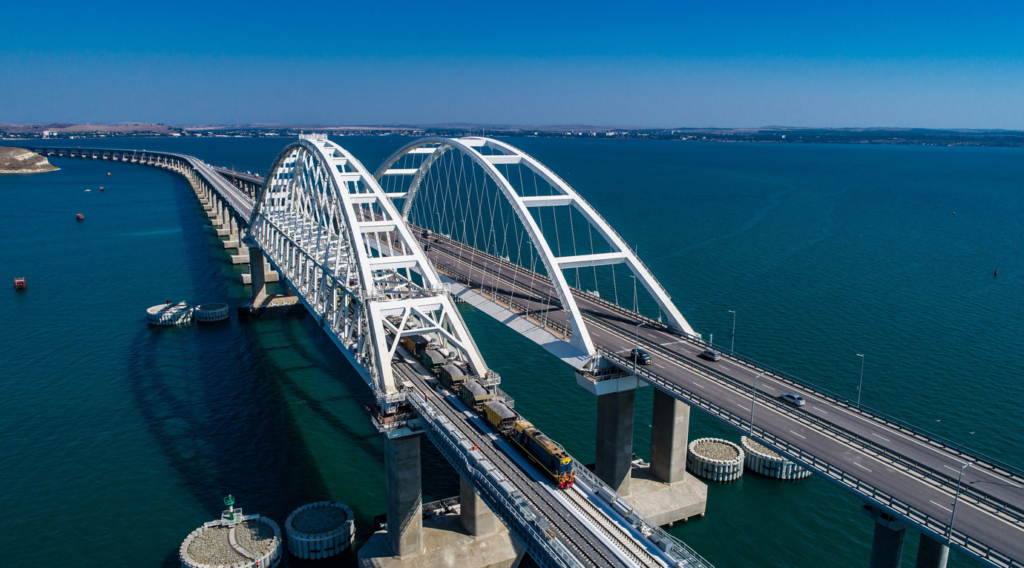
In October 2020 two persons and four entities involved in the construction of the Kerch Bridge, linking Crimea to Russia, were added to the list. Also in October 2020, but based on a different EU legal basis — the chemical weapons sanctions regime — six Russian individuals and one entity were added to the relevant travel ban and asset freeze list as a result of the August 2020 assassination attempt on Alexei Navalny using a military-grade toxic nerve agent. This is the same legal instrument as was used to sanction those responsible for the Skripal case in Salisbury (UK) in March 2018.” Will it make a difference? Of course not. Putin sees his way as the future for all. We just have to hope he’s wrong.

